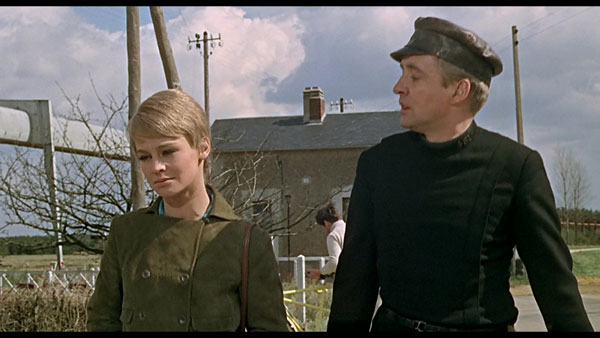Film: Jessica Kellgren-Hayes
Loving the classics
I have always been a little old fashioned, even from an early age – when I chose to wear smocks and petticoats over jeans. I still don’t own a single pair of trousers, as sacrilegious as that might sound! My clothes always have a vintage twist, my hair is set with rollers, my furniture is antique and I’ve never quite managed to wrap my mind around double glazing (people don’t like drafty old houses?!).
My favourite ‘old’ thing is that subset of cinema regarded as ‘classic’. Five years ago, whilst studying the history of cinema, I started a YouTube blog called ‘The Classical Review’ where I review old films and invite my audience to suggest films they consider to be ‘classics’. Today the blog is part of Latest TV’s film review show, PostFeature, which I present with Joseph Gunn. Each week I look at a classic film that ties to the newly released feature film we review in the main part of the show. For this week’s episode, I review Fahrenheit 451 from 1966; set in a dystopian future, it is based on Ray Bradbury’s novel and directed by French master of cinema, Francois Truffaut.

Protagonist Guy Montag is a firefighter living in a lonely, isolated society where books have been outlawed by a government afraid of an independent-thinking public. The job of a ‘Firefighter’ is to find and burn on sight all books, aided by civilian ‘informants’. People are drugged into complacency, completely illiterate and getting their information from wall-length television screens. The film’s opening credits are spoken rather than displayed in type, the director’s hint of what life would be like in an illiterate culture. Yet, after falling in love with book-hoarding Clarisse and beginning to read confiscated books, Montag begins to question the government’s motives behind book-burning.
It’s a wonderful film but Truffaut wasn’t happy with it, and his remarks about the film are responsible for it’s low reputation. It was his white whale; taking four years to put the production together. The shoot in England proved difficult for Truffaut – in part because he spoke no English (helpful!) but largely because working with his lead actor, Oskar Werner, was near impossible.
Rather than keeping their conflicts out of the press, Truffaut decided to break the story himself, publishing excepts of his diary. The account told of a difficult and unpleasant experience filming with Werner, including Truffaut’s shock when his actor arrived on set one day with an entirely new haircut!
To find out more about the film, watch PostFeature on Wednesday at 6.30pm or check the listings for repeats. Classical reviews are also uploaded to my YouTube channel.





















